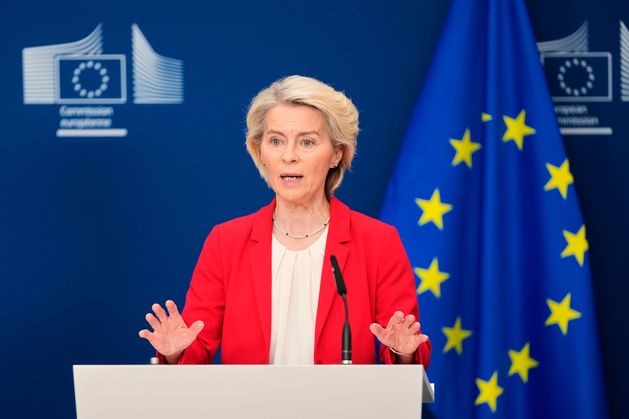Measures would apply to companies seeking access to key digital and manufacturing markets like cars and batteries
The measures would apply to companies seeking access to key digital and manufacturing markets like cars and batteries, according to people familiar with the plans. The rules would also require the firms to use a set amount of EU goods or labour, and to add value to the products on EU soil.
Enforcing joint ventures is another option on the table.
While the rules, expected next month, would technically apply to all non-EU firms, the goal is to keep China’s manufacturing might from overwhelming European industry, said the people, who spoke on the condition of anonymity.
The high-stakes manoeuvre comes at a pivotal moment for Europe. Subsidised Chinese products have overrun EU industries, and Beijing’s looming restrictions on rare earth minerals are threatening to squeeze the continent’s manufacturers.
But targeting China, with a page from Beijing’s protectionist playbook, is likely to provoke a backlash, potentially damaging what remains a critical trading relationship.
“Several measures are being considered to foster a strong, competitive, and decarbonised European industry,” said Thomas Regnier, a spokesperson for the European Commission. He added that “no final decision has been made regarding the exact scope and nature of these measures”.
Tensions are already high between the two powers. The EU recently moved to double tariffs on steel imports, which would hit cheap Chinese imports. Days later, Beijing said it would adopt new export controls on vital rare earth minerals, prompting EU calls to further limit the bloc’s economic dependency on China.
The EU has spent the last several years vowing to protect domestic manufacturers from China. The forthcoming regulations will accelerate that effort, arriving as part of a legislative proposal called the Industrial Accelerator Act.
Last month European Commission president Ursula von der Leyen described the legislation as a way to boost Europe’s next-generation industries.
“The future of clean tech will continue to be made in Europe,” she said in an annual address to the European Parliament. “But for that, we also need to make sure that our industry has the materials here in Europe. In sum, when it comes to digital and clean tech: faster, smarter and more European.”
With its plan, the EU is mimicking Beijing, which has long put strict parameters on outside firms wanting to enter its market. Simultaneously, China has invested heavily in Europe and other parts of the world through its Belt and Road Initiative, hoovering up technical knowledge in the process.
“China is flexing its muscles, using trade interdependencies for political gain,” EU economy commissioner Valdis Dombrovskis told the American Enterprise Institute in Washington yesterday.
Europe has been struggling with anaemic growth and weak investment, dragged down by the sluggish performance of Germany, its largest economy.
As European industry looks for ways to protect their business models, lobby groups have been calling for the commission to consider drastic action to gain access to technologies where China has gained an edge.
